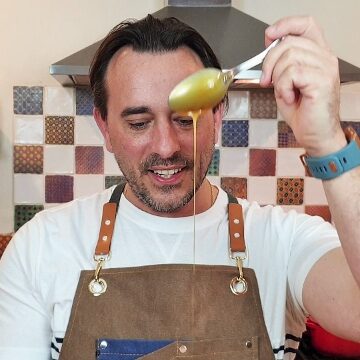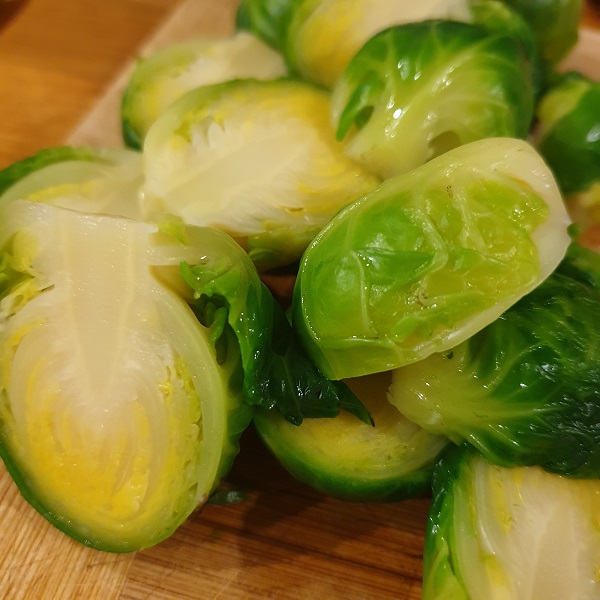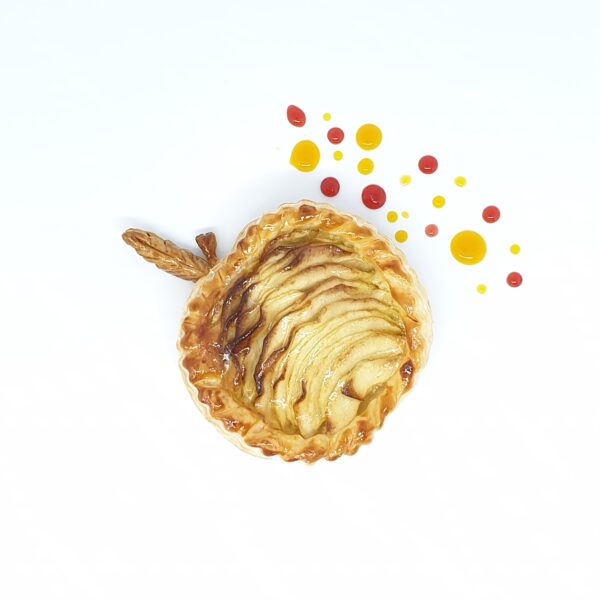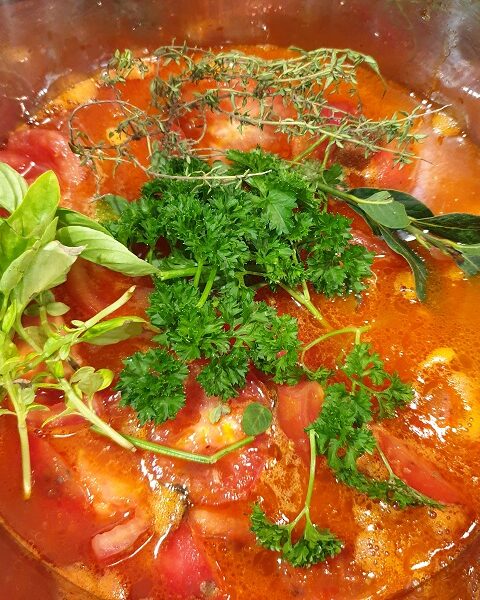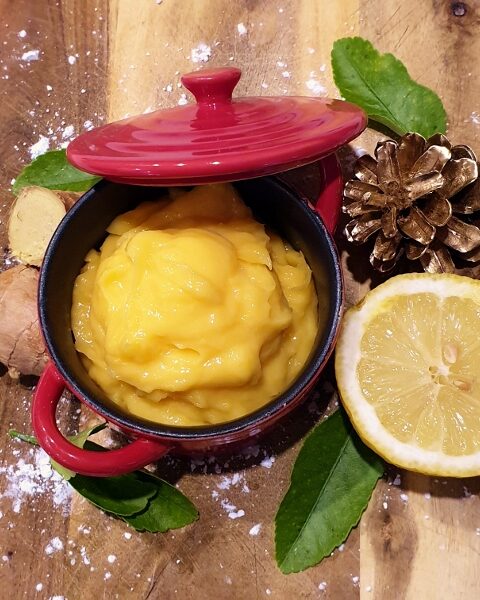Hello Foodies,
This week is about cooking green using the methods of cookery “blanching” and “refreshing”. An easy way to parboiled your vegetables and to maximize the preservation of colours, nutrients and vitamins.
“Far out, Brussels sprouts”, I know some of you hate them and others love them. I must say growing up I hated them. They were often insipid, bitter in fact disgusting. But I discovered whilst learning my trade that my past experiences with this vegetable was due to poor care in the cooking methodology. This is a link to the recipe https://cookingwithfrenchy.com/recipes/the-perfect-brussels-sprouts/
Therefore, I share with you a little tricks and tips of the trade to make the best Brussels sprouts and fall again with this vegetables low in calories and full of goodies.
Green vegetables contain chlorophyll, when chlorophyll is cooked for too long it turns to a grey colour or even brown. To prevent this, add salt to your water when boiling your greens.
The salt provides a “barrier” against discolouration, and keeps the chlorophyll green.
Always bring the water to a boil before you add the vegetables. This will ensure the pores on the vegetables will be quickly blocked, and prevent vitamins and minerals from leaching out into the water.
“Blanching” your vegetables is an important method of cookery. If you are one making a lot of food preparation, it allows you to maintain the colour and nutrients of your vegetables. Blanching means to cook your vegetables to 90% and allows you to reheat them without overcooking them. Cook the vegetables until they are just getting tender. You do not want to overcook them or under-cook them to be crunchy.
It is also important to stop the cooking process as soon as the vegetable is cooked perfectly. This action is made through what chefs call “refreshing”. The best way to do this is to transfer your green in a bowl of very cold water and some ice. This will also fix the chlorophyll in the greens and keep their colour vibrant.
Brussels sprouts are a source of the B-vitamins necessary for cellular energy production, including vitamin B6, thiamine, and folate. Brussels sprouts contain 24 percent of the daily recommended amount of vitamin A, which is great for your eyes and organs. Brussels sprouts also contain manganese, which helps with the metabolism of carbohydrates, amino acids, and cholesterol.
Brussels sprouts are an excellent source of vitamin C and vitamin K, with a cup providing more than a day’s requirement of these vitamins. Vitamin C is an important water-soluble vitamin that helps to repair tissues and boost immunity. Vitamin K is an important fat-soluble vitamin that plays a role in bone formation and blood clotting.
I reheat mine with a bit of olive oil and butter is just a supplement and it can be avoided. However, as I often say “life taste better with butter”.
David
